|
Books Should Be Free Loyal Books Free Public Domain Audiobooks & eBook Downloads |
|
|
Books Should Be Free Loyal Books Free Public Domain Audiobooks & eBook Downloads |
|
Top Authors |
|---|
Book type:
Sort by:
|
By: John Bach McMaster (1852-1932) | |
|---|---|
 A Brief History of the United States
A Brief History of the United States
| |
By: Ernest Weekley (1865-1954) | |
|---|---|
 The Romance of Words (4th ed.)
The Romance of Words (4th ed.)
| |
By: Hannah More (1745-1833) | |
|---|---|
 Essays on Various Subjects Principally Designed for Young Ladies
Essays on Various Subjects Principally Designed for Young Ladies
| |
By: William Roscoe (1753-1831) | |
|---|---|
 The Peacock 'At Home' AND The Butterfly's Ball AND The Fancy Fair
The Peacock 'At Home' AND The Butterfly's Ball AND The Fancy Fair
| |
By: Constance Fenimore Woolson (1840-1894) | |
|---|---|
 Anne
Anne
| |
By: Andreas Latzko (1876-1943) | |
|---|---|
 Men in War
Men in War
| |
By: Charles Major (1856-1913) | |
|---|---|
 Dorothy Vernon of Haddon Hall
Dorothy Vernon of Haddon Hall
| |
By: Constance Fenimore Woolson (1840-1894) | |
|---|---|
 Rodman the Keeper Southern Sketches
Rodman the Keeper Southern Sketches
| |
By: James Owen Dorsey (1848-1895) | |
|---|---|
 Siouan Sociology
Siouan Sociology
| |
By: Arthur Weigall (1880-1934) | |
|---|---|
 Burning Sands
Burning Sands
| |
By: James Owen Dorsey (1848-1895) | |
|---|---|
 Osage Traditions
Osage Traditions
| |
By: Charles S. (Charles Stephen) Brooks (1878-1934) | |
|---|---|
 Chimney-Pot Papers
Chimney-Pot Papers
| |
By: Hannah More (1745-1833) | |
|---|---|
 Coelebs In Search of a Wife
Coelebs In Search of a Wife
| |
By: Constance Fenimore Woolson (1840-1894) | |
|---|---|
 Mentone, Cairo, and Corfu
Mentone, Cairo, and Corfu
| |
By: Hannah More (1745-1833) | |
|---|---|
 Stories for the Young Or, Cheap Repository Tracts: Entertaining, Moral, and Religious. Vol. VI.
Stories for the Young Or, Cheap Repository Tracts: Entertaining, Moral, and Religious. Vol. VI.
| |
 The Shepherd of Salisbury Plain and Other Tales
The Shepherd of Salisbury Plain and Other Tales
| |
 Percy A Tragedy
Percy A Tragedy
| |
By: Constance Fenimore Woolson (1840-1894) | |
|---|---|
 East Angels
East Angels
| |
By: Charles S. (Charles Stephen) Brooks (1878-1934) | |
|---|---|
 There's Pippins and Cheese to Come
There's Pippins and Cheese to Come
| |
By: Constance Fenimore Woolson (1840-1894) | |
|---|---|
 The Old Stone House
The Old Stone House
| |
By: Charles Major (1856-1913) | |
|---|---|
 A Forest Hearth: A Romance of Indiana in the Thirties
A Forest Hearth: A Romance of Indiana in the Thirties
| |
By: William Roscoe (1753-1831) | |
|---|---|
 The Council of Dogs
The Council of Dogs
| |
By: Hannah More (1745-1833) | |
|---|---|
 The Fatal Falsehood
The Fatal Falsehood
| |
By: Constance Fenimore Woolson (1840-1894) | |
|---|---|
 Jupiter Lights
Jupiter Lights
| |
 Castle Nowhere
Castle Nowhere
| |
By: Charles Major (1856-1913) | |
|---|---|
 Yolanda: Maid of Burgundy
Yolanda: Maid of Burgundy
| |
By: John Strange Winter (1856-1911) | |
|---|---|
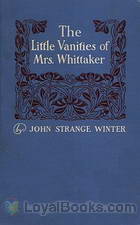 The Little Vanities of Mrs. Whittaker A Novel
The Little Vanities of Mrs. Whittaker A Novel
| |
By: Hannah More (1745-1833) | |
|---|---|
 The Inflexible Captive A Tragedy, in Five Acts
The Inflexible Captive A Tragedy, in Five Acts
| |
By: Charles Major (1856-1913) | |
|---|---|
 The Touchstone of Fortune
The Touchstone of Fortune
| |
By: Mary A. Wilson | |
|---|---|
 Mrs. Wilson's Cook Book Numerous New Recipes Based on Present Economic Conditions
Mrs. Wilson's Cook Book Numerous New Recipes Based on Present Economic Conditions
| |
By: David Brewster (1781-1868) | |
|---|---|
 Martyrs of Science, or, the Lives of Galileo, Tycho Brahe, and Kepler
Martyrs of Science, or, the Lives of Galileo, Tycho Brahe, and Kepler
“The martyrs of Science” gives a brief biography of Galileo, Brahe and Kepler. These three men played a pivotal role in the scientific revolution during the early modern period. This book throws light upon their lives, their scientific achievements, adversities which they faced for their work and how they transformed the lives of the future generations forever. It also provides evidence which establishes that the work carried out by them are original irrespective of the claims by other men who tried in vain to rob them of their honor. The author highlights some of their fallacies which hindered their progress. | |
By: Henrietta Latham Dwight | |
|---|---|
 The Golden Age Cook Book
The Golden Age Cook Book
| |
By: Sanford Bell | |
|---|---|
 A Preliminary Study of the Emotion of Love between the Sexes
A Preliminary Study of the Emotion of Love between the Sexes
| |
By: A. B. (Albert B.) Simpson (1843-1919) | |
|---|---|
 Days of Heaven Upon Earth
Days of Heaven Upon Earth
| |
By: Edwin Walford | |
|---|---|
 Edge Hill The Battle and Battlefield
Edge Hill The Battle and Battlefield
| |
By: William H. Mallock (1849-1923) | |
|---|---|
 Is Life Worth Living?
Is Life Worth Living?
| |
 A Critical Examination of Socialism
A Critical Examination of Socialism
| |
 Memoirs of Life and Literature
Memoirs of Life and Literature
| |
 Every Man His Own Poet Or, The Inspired Singer's Recipe Book
Every Man His Own Poet Or, The Inspired Singer's Recipe Book
| |
By: L. P. (Linus Pierpont) Brockett (1820-1893) | |
|---|---|
 Woman's Work in the Civil War A Record of Heroism, Patriotism, and Patience
Woman's Work in the Civil War A Record of Heroism, Patriotism, and Patience
| |
By: George Francis Atkinson (1854-1918) | |
|---|---|
 Studies of American Fungi. Mushrooms, Edible, Poisonous, etc.
Studies of American Fungi. Mushrooms, Edible, Poisonous, etc.
| |
By: Agnes Baden-Powell (1858-1945) | |
|---|---|
 How Girls Can Help Their Country
How Girls Can Help Their Country
| |
By: J. R. Clark (John R. Clark) Hall (1855-) | |
|---|---|
 A Concise Anglo-Saxon Dictionary For the Use of Students
A Concise Anglo-Saxon Dictionary For the Use of Students
| |
By: Jacob Burckhardt (1818-1897) | |
|---|---|
 The Civilisation of the Renaissance in Italy
The Civilisation of the Renaissance in Italy
| |
By: Bonaventure Hammer (1842-1917) | |
|---|---|
 Mary, the Help of Christians Novenas in Preparation for the Principal Feasts of the Blessed Virgin
Mary, the Help of Christians Novenas in Preparation for the Principal Feasts of the Blessed Virgin
| |
By: Richard Sabia | |
|---|---|
 I Was a Teen-Age Secret Weapon
I Was a Teen-Age Secret Weapon
Poor Dolliver Wims is a terribly misunderstood teen age boy from the backwoods. Is he mean or evil? Quite the opposite: He does nothing wrong, hurts no one and wants only to be liked and to help, yet he seems to be blamed for every accident that ever happens to anyone in the University research facility where he 'works' as a porter. Why does disaster seem to swirl around him like a tornado whips around it's eye. He never is hurt in the slightest way while others slash themselves with previously innocent knives, are smashed by falling bookcases that had no cause to fall, and are shot by guns that are safely tucked away... | |
By: Robert P. Multhauf (1919-2004) | |
|---|---|
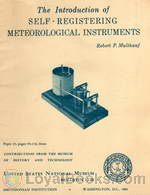 The Introduction of Self-Registering Meteorological Instruments
The Introduction of Self-Registering Meteorological Instruments
| |
 Development of Gravity Pendulums in the 19th Century
Development of Gravity Pendulums in the 19th Century
| |
By: Richard Sabia | |
|---|---|
 The Premiere
The Premiere
| |
By: Bonaventure Hammer (1842-1917) | |
|---|---|
 General Catholic Devotions
General Catholic Devotions
| |
By: Robert P. Multhauf (1919-2004) | |
|---|---|
 Mine Pumping in Agricola's Time and Later
Mine Pumping in Agricola's Time and Later
| |
By: Alice Turner Curtis (1863-??) | |
|---|---|
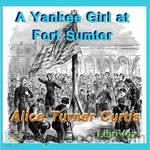 A Yankee Girl at Fort Sumter
A Yankee Girl at Fort Sumter
Sylvia Fulton is a ten-years-old girl from Boston who stayed in Charleston, South Carolina, before the opening of the civil war. She loves her new home, and her dear friends. However, political tensions are rising, and things start to change. Through these changes, Silvia gets to know the world better: from Estrella, her maid, she starts to understand what it is to be a slave, from her unjust teacher she learns that not all beautiful people are perfect, and from the messages she carries to Fort Sumter she learns what is the meaning of danger. However, this is a lovely book, written mostly for children. | |
By: Friedrich Johann Lehmann (1866-) | |
|---|---|
 A Treatise on Simple Counterpoint in Forty Lessons
A Treatise on Simple Counterpoint in Forty Lessons
| |
By: William Scott-Elliot (?-1930) | |
|---|---|
 Story of Atlantis and the Lost Lemuria
Story of Atlantis and the Lost Lemuria
This volume contains two publications by W. Scott-Elliot, namely The Story of Atlantis (1896) and The Lost Lemuria (1904). A theosophist and believer of the Occult, W. Scott-Elliot gives us a description of the history and structure of Atlantis and Lemuria, along with what he considers evidence of this. The Story of Atlantis is prefaced by Alfred Percy Sinnett. | |
By: Percival Leigh (1813-1889) | |
|---|---|
 The Comic Latin Grammar A new and facetious introduction to the Latin tongue
The Comic Latin Grammar A new and facetious introduction to the Latin tongue
| |
By: William Henry Frost (1863-1902) | |
|---|---|
 Fairies and Folk of Ireland
Fairies and Folk of Ireland
| |
By: William W. Collins (1862-1951) | |
|---|---|
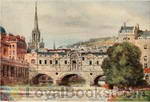 Cathedral Cities of England 60 reproductions from original water-colours
Cathedral Cities of England 60 reproductions from original water-colours
| |
By: Forrest J. Ackerman (1916-2008) | |
|---|---|
 Out of This World Convention
Out of This World Convention
| |
By: Isabella Lilias Trotter (1853-1928) | |
|---|---|
 Parables of the Cross
Parables of the Cross
Death is the Gate of Life. There was deep insight in those old words. For man's natural thought of death is that of a dreary ending in decay and dissolution. And from his standpoint he is right: death as the punishment of sin is an ending.But far other is God's thought in the redemption of the world. He takes the very thing that came in with the curse, and makes it the path of glory. Death becomes a beginning instead of an ending, for it becomes the means of liberating a fresh life.And so the hope that lies in these parable lessons of death and life is meant for those only who are turning to Him for redemption... | |
By: Lyn Venable | |
|---|---|
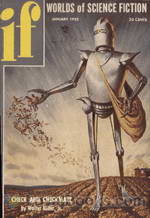 Time Enough at Last
Time Enough at Last
| |
By: Theodore Parker (1810-1860) | |
|---|---|
 Two Christmas Celebrations
Two Christmas Celebrations
| |
By: Isabella Lilias Trotter (1853-1928) | |
|---|---|
 Parables of the Christ-life
Parables of the Christ-life
| |
By: Forrest J. Ackerman (1916-2008) | |
|---|---|
 Micro-Man
Micro-Man
| |
By: William W. Collins (1862-1951) | |
|---|---|
 Cathedral Cities of Spain 60 Reproductions from Original Water Colours
Cathedral Cities of Spain 60 Reproductions from Original Water Colours
| |
By: Alice Turner Curtis | |
|---|---|
 A Little Maid of Old Maine
A Little Maid of Old Maine
| |
By: Ferruccio Busoni (1866-1924) | |
|---|---|
 Sketch of a New Esthetic of Music
Sketch of a New Esthetic of Music
| |
By: Charles Bradlaugh (1833-1891) | |
|---|---|
 Humanity's Gain from Unbelief Reprinted from the "North American Review" of March, 1889
Humanity's Gain from Unbelief Reprinted from the "North American Review" of March, 1889
| |
By: A. T. Thomson (1797-1862) | |
|---|---|
 The Wits and Beaux of Society Volume 1
The Wits and Beaux of Society Volume 1
| |
By: Lyn Venable | |
|---|---|
 Homesick
Homesick
| |
By: A. T. Thomson (1797-1862) | |
|---|---|
 Memoirs of the Jacobites of 1715 and 1745. Volume I.
Memoirs of the Jacobites of 1715 and 1745. Volume I.
| |
By: Lyn Venable | |
|---|---|
 Grove of the Unborn
Grove of the Unborn
| |
By: Theodore Parker (1810-1860) | |
|---|---|
 Speeches, Addresses, and Occasional Sermons, Volume 1 (of 3)
Speeches, Addresses, and Occasional Sermons, Volume 1 (of 3)
| |
By: Charles Bradlaugh (1833-1891) | |
|---|---|
 A Few Words About the Devil And Other Biographical Sketches and Essays
A Few Words About the Devil And Other Biographical Sketches and Essays
| |
By: Charles Bradlaugh (1833-1891) | |
|---|---|
 The Bible: what it is
The Bible: what it is
| |
By: A. T. Thomson (1797-1862) | |
|---|---|
 The Wits and Beaux of Society Volume 2
The Wits and Beaux of Society Volume 2
| |
By: Charles Bradlaugh (1833-1891) | |
|---|---|
 When Were Our Gospels Written?
When Were Our Gospels Written?
| |
By: William Henry Frost (1863-1902) | |
|---|---|
 The Wagner Story Book Firelight Tales of the Great Music Dramas
The Wagner Story Book Firelight Tales of the Great Music Dramas
| |
By: Alice Turner Curtis | |
|---|---|
 A Little Maid of Massachusetts Colony
A Little Maid of Massachusetts Colony
| |
 A Little Maid of Old Philadelphia
A Little Maid of Old Philadelphia
| |
By: Charles Bradlaugh (1833-1891) | |
|---|---|
 Heresy: Its Utility And Morality A Plea And A Justification
Heresy: Its Utility And Morality A Plea And A Justification
| |
 The True Story of my Parliamentary Struggle
The True Story of my Parliamentary Struggle
| |
By: Alice Turner Curtis (1863-?) | |
|---|---|
 Little Maid of Province Town
Little Maid of Province Town
Plucky eight year old Anne Nelson, living in Provincetown on the tip of Cape Cod, is determined to bring the Revolutionary War to an end so that she can be reunited with her soldier father. Will she succeed in carrying an important message from Boston to Newburyport, warning the American troops to be prepared, or will she be caught by the English ships patrolling the harbor? | |
By: Charles Bradlaugh (1833-1891) | |
|---|---|
 Some Objections To Socialism From "The Atheistic Platform", Twelve Lectures
Some Objections To Socialism From "The Atheistic Platform", Twelve Lectures
| |
By: Alice Turner Curtis | |
|---|---|
 A Little Maid of Ticonderoga
A Little Maid of Ticonderoga
| |
By: Charles Bradlaugh (1833-1891) | |
|---|---|
 The Impeachment of The House of Brunswick
The Impeachment of The House of Brunswick
| |
By: Lee Archer | |
|---|---|
 Lease to Doomsday
Lease to Doomsday
| |
By: James Bryce Bryce (1838-1922) | |
|---|---|
 Impressions of South Africa
Impressions of South Africa
| |
By: Kate Sanborn (1839-1917) | |
|---|---|
 Adopting an Abandoned Farm
Adopting an Abandoned Farm
| |
By: Rose Macaulay (1881-1958) | |
|---|---|
 The Lee Shore
The Lee Shore
| |
 Dangerous Ages
Dangerous Ages
| |